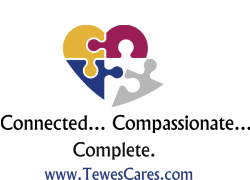|
There are many advantages to having a housemate: Defraying expenses. Sharing household chores. Help with transportation. Companionship. Increased safety. Peace of mind. In a survey of older adults who shared their homes, 50% said that since gaining a housemate, they are happier, sleep better, are getting out more, and they call upon their families less for help. Homesharing is a viable option for aging in place.
If this is a path you're exploring, here are some tips for success:
Looking for alternatives so you can age in place? Give us a call at 203-826-9206.
0 Comments
Once you've decided it's unwise to give or lend money to children—or grandchildren—think through how you want to communicate your decision.
Money is often equated with love. Even if this is a loving decision (e.g., you've determined that giving or lending them money is encouraging something unhealthy), how and when you decline is important for the future of your relationship. Here are tips for navigating this sensitive discussion:
Concerned about your kids and money? Let us help you plan for aging wisely. Call us at 203-826-9206. Aging in place has great appeal and can be challenging and expensive. Elders who are part of a "Village" help each other with simple tasks, making it easier and more financially feasible to stay at home. Today, there are close to 250 Villages across the country. They are part of a widespread grassroots movement of like-minded elders focused on community building and elder empowerment. This is not just another social service.
The basic model is neighbors helping neighbors. Members of a Village help each other address chores such as transportation or shopping. Or even changing a light bulb or setting up a digital assistant device. Sometimes there's a collective give and take. For example, a blind member might get help with grocery shopping and then give back to the Village by leading a support group for other visually impaired members. Reciprocity is not required. But it is consistent with a general theme that everyone has value, a way to contribute. The model builds self-esteem. Some Villages develop an information and referral service, circulating lists of reliable, senior-friendly contractors. To tackle loneliness and isolation, some Villages host educational or social events. Each Village is different, depending on the needs of its members and its structure. Most Villages are nonprofit organizations. They charge a yearly membership fee to help pay for a director (fees range from $25 to $900/year). With the "we help each other" model, many of the events and services are free because they are donated by members. The age of Village participants ranges from sixty to mid-eighties, with most in their mid-seventies. Some people join because of an immediate need. Younger members may have a "pay it forward" attitude. Others are involved because of the community and social contact. And some Villages do run out of energy and close. Want to find a Village? Create a Village? There is a national Village-to-Village Network. It offers guidance for neighbors hoping to start their own grassroots group. You can find a map and the Village Toolkit at their website. Wonder what it's like to be a member of a Village? Check out the Village Member Stories of the Seacoast Village in New Hampshire. Want to age in place and be engaged with community? Let us help you explore local alternatives. Call 203-826-9206. Planning a trip?
Your health insurance might not come with you! International travel. If you need medical care outside the United States—an ER visit, hospitalization, ambulance, medical exam, labs, or a medical evacuation—there are very few circumstances in which original Medicare will help out. You should be prepared to pay 100 percent of any medical fees incurred if you are traveling outside the fifty states, District of Columbia, Puerto Rico, the U.S. Virgin Islands, Guam, American Samoa, and the Northern Mariana Islands. If you have original Medicare and a supplemental plan (Medigap), your supplement may pay up to 80 percent of foreign travel emergency care during the first sixty days outside the country. Contact your insurer to confirm what they will and won't cover, and if there are deductibles or copayments that apply. Ask if they have a service to help you find local providers. Also ask about nonemergency care such as COVID testing or blood pressure checks. And about the billing procedure: What paperwork do you need for reimbursement later? Likewise, if you have Medicare Advantage, contact your plan before you go. Some plans have a foreign travel clause with support services such as assistance finding care, vaccination clinics, or a call center for translation. Others follow original Medicare's lead and provide no coverage at all. Medicare Part D plans do not pay for medicines purchased abroad. Furthermore, you may not be able to find what you need. Stock up before you go. Travel within the United States. If you have original Medicare, your coverage holds wherever you go in the United States. The same is true for any supplemental insurance. And typically for Part D (prescriptions). If you have Medicare Advantage, find out if your destination is within the local network. Some plans offer a "travel benefit" that allows for up to six months of out-of-network care. Call your insurer to confirm emergency and nonemergency coverage for domestic travel. Consider travel health coverage. Special insurance for travel is available to address medical care needs, but read the policy carefully. There are often exceptions, waivers, and disqualifying events. If you are booking a flight or cruise, the carrier may offer this type of insurance. The best deals, however, are direct from insurance companies. But you must buy soon after your first trip payment. Beyond emergency care, you might also consider adding a preexisting condition waiver to cover nonemergency care for chronic conditions. Ready to hit the road? Let's talk about wise preparations. Give us a call at 203-826-9206. Aging comes to us all. What makes solo aging different is the need to be more proactive about arranging for help. Twenty-two percent of older adults acknowledge they will need to take care of themselves. (Even if you are partnered now or have children, you are wise to consider the possibility of solo aging because, well, things can change … death, divorce, estrangement. In that light, we are all potential solo agers.)
Successful solo aging requires that you
Give us a call at 203-826-9206. Once you get beyond the sentimental value of your belongings, you are still up against the logistics of how to get things out of your nest. Some stuff is easier to pass along to family than other stuff. Options for what's left over: Sell, donate, or just "get rid of it!" Start with family. You may have strong emotions about certain items. It may be disappointing, however, to find that your kids don't feel such attachment to family heirlooms. Generally speaking, the younger generation is not interested in furniture (even antiques), books, china, silverware, crystal, Persian rugs, or embroidered linens. If there's a special story attached, that may be a hook. For family photographs, ditch the physical albums by digitizing photos and creating online albums. Selling it yourself. Give yourself plenty of time so you're not hurriedly making deals at prices you later regret. A yard sale? That's a lot of work, and you might not sell everything. That said, it can be a fun way to meet the neighbors or say good-bye if you are relocating. Alternatively, put ads on craigslist.org, nextdoor.com, or Facebook Marketplace. Items move more quickly if you provide photos and detailed descriptions. Be prepared for phone calls, appointments, and no-shows. If you have specialty items, consider giving them an even wider buyer audience by enrolling to sell on eBay.com. But you need to be prepared to ship your items. (At the least, eBay is a way to get a sense of the going price.) Having others sell it. Professional sellers will take a commission of 30% or more, and they may need to reduce prices if your goods aren't moving. You might opt for an estate sale at your home (items from other households may be included). Auction houses take only specialized items. Consignment shops accept what they think will sell, but they'll showcase only for a limited time, and then you have to take items back. Liquidators take everything, including the junk. Depending on the value of the good things, you may need to pay them. (For going prices, check out prices4antiques.com for antiques; biblio.com or bookgilt.com for books; replacements.com for specific patterns of china, crystal, and silverware.) Donating. For big batches, nonprofits such as Goodwill and the Salvation Army will come and pick up. But they might not take everything. (They know what sells and what doesn't.) Contact local shelters as they often have need of most any household item you want to give away. Ask for receipts so you can take the donation amount off your taxes. You can also post on buynothingproject.org to give away items that would otherwise go to the landfill. Get help. If this all seems daunting—it is! Consider the assistance of a senior move manager, especially if time is limited. We can help with that. Are you "right-sizing"? Want experienced assistance? Give us a call at 203-826-9206. Change is the only constant. And as we enter our later years, it seems the changes are more frequent. Before writing Life Is in the Transitions, Bruce Feiler interviewed 225 individuals to gain a sense of the ways people navigate disruption across the lifespan. He found that we experience roughly thirty-six transitions in a lifetime, averaging one every twelve to eighteen months. Often several pile up at once, especially when we are older. Common transitions for older adults include a shift in health or ability, a marital change (death or divorce), a new housing situation, or a drop in expected income.
There are general phases to transitions. One phase is the "long goodbye," our reconciling with the fact that one aspect of our life is irrevocably coming to a close. Another is the "messy middle"—figuring out how to find balance in the chaos of change. And the third is the "new beginning," embracing a new way of living. Here are seven strategies Feiler suggests using during a transition:
Let us help guide you through. Give us a call at 203-826-9206. The most common reason to move in later years is to be closer to children and grandchildren. Regardless of your reason for relocating, unless you plan to live with family, there will be many hours of the day when you are just plain newbies in town. How will you spend your time?
If proximity to younger kin is compelling your thoughts, clarify the role you want to play and see if it's a shared vision. If you have hopes they will help as you get older, be sure to discuss that, as well as any childcare expectations they may have. Also think through if they need to relocate (e.g., job transfer), what will you do then? Relocating can be a late-life adventure of discovery. Some issues to consider:
Optimal timing: As soon as possible! If you know a move is in your future, don't wait. Research shows successful transitions occur when you relocate while you still have the ability to get around easily and establish a strong social circle. Plus, decluttering is not easy. Even with hired help, packing up and unpacking is taxing—physically and emotionally. Are you considering a move? Let us help you evaluate the options. Call 203-826-9206. When an adult child asks for money, it's hard to say no. You want to respond to a need. But perhaps your child perceives that you don't need all you have, or that they're simply requesting some of their inheritance, just a bit early.
Before you answer, ask for time to think it over. You want to make a decision based on wisdom, not emotion. You also need time to discuss this with your spouse, if you have one. Here are some factors to consider:
Let us help you sort through the issues. Give us a call at 203-826-9206. You probably already have some "smart" features in your home.
For instance, a thermostat you can program for a higher temp during the day and lower at night. Perhaps it has remote capabilities, so you can make changes from afar. Or sensors, such as garden sprinklers that shut off when it's raining, or outdoor lights with motion detectors. The most-recommended safety features for older adults include the following:
Give us a call to talk about options. 203-826-9206 |
AuthorLeslie Alin Tewes is a Geriatric, Disability & Medical Care Manager; Elder and Adult Care Advocate; Quality Improvement Specialist. Archives
July 2024
Categories |












 RSS Feed
RSS Feed

